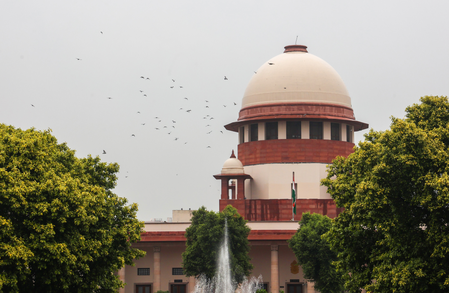

New Delhi, Oct 30 (IANS) The Supreme Court is set to deliver its decision on Friday in the suo motu case concerning the practice of investigative agencies summoning advocates for providing legal advice to clients or for representing them before judicial forums.
As per the causelist published on the website of the apex court, a bench of Chief Justice of India (CJI) B.R. Gavai and Justices K. Vinod Chandran and N.V. Anjaria will likely lay down guidelines in the case titled “In Re: Summoning Advocates Who Give Legal Opinion or Represent Parties During Investigation of Cases and Related Issues”.
The suo motu proceedings were initiated earlier this year after several instances surfaced in which probe agencies issued summons to lawyers in connection with advice rendered to their clients.
The apex court had observed that such actions could strike at the root of the legal profession’s independence and undermine the Constitutionally protected attorney-client privilege.
During previous hearings, the CJI Gavai-led bench had expressed concern over the summoning of advocates by agencies like the Enforcement Directorate (ED) and state police departments.
“How can lawyers be summoned like this? This is privileged communication,” it had remarked, underscoring that communications between a lawyer and their client are protected from disclosure.
Attorney General of India R. Venkataramani and Solicitor General Tushar Mehta, both appearing for the Centre, agreed that lawyers cannot be summoned merely for providing legal advice.
Solicitor General Mehta had, however, said that exceptional cases — such as when a lawyer is alleged to have participated in an unlawful act — could be treated differently, subject to judicial oversight.
Earlier, a two-judge bench of Justices K.V. Viswanathan and N.K. Singh had highlighted the need for comprehensive guidelines, noting that summoning advocates in such circumstances not only violated their professional rights but also posed a serious threat to the autonomy of the Bar.
The Supreme Court Advocates-on-Record Association (SCAORA) had also urged the apex court to safeguard the sanctity of the lawyer-client relationship and frame clear directions to prevent any misuse of investigative powers against legal professionals.
–IANS
pds/khz
